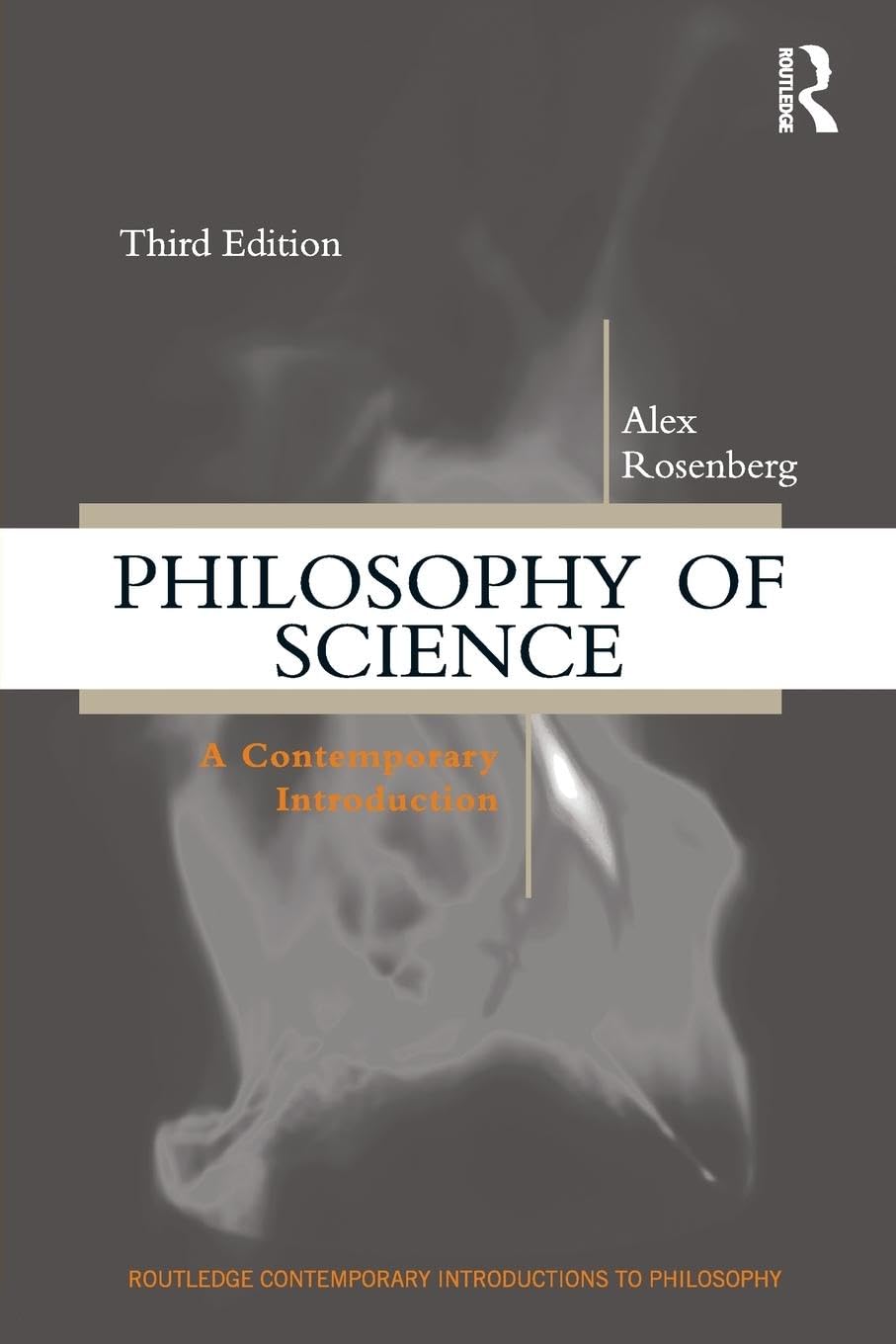Philosophy of Science: A Contemporary Introduction (Routledge Contemporary Introductions to Philosophy)
Philosophy of Science: A Contemporary Introduction (Routledge Contemporary Introductions to Philosophy) is backordered and will ship as soon as it is back in stock.
Couldn't load pickup availability
Genuine Products Guarantee
Genuine Products Guarantee
We guarantee 100% genuine products, and if proven otherwise, we will compensate you with 10 times the product's cost.
Delivery and Shipping
Delivery and Shipping
Products are generally ready for dispatch within 1 day and typically reach you in 3 to 5 days.
Product Details
-
Author: Alex Rosenberg
-
Publisher / Brand: Taylor & Francis Ltd
-
Language: English
-
Edition: 3rd Edition
-
ISBN / EAN: 9780415891776
-
Number of Pages: 320
-
Cover Type: Paperback
-
Release Date: 12 July 2011
-
Dimensions: 9.1 x 6.0 x 0.7 inches
Product Description
Philosophy of Science: A Contemporary Introduction (Third Edition) by Alex Rosenberg is a definitive and engaging resource for anyone looking to explore the foundational questions behind scientific inquiry. This thoroughly updated edition continues to serve as a key introductory text, blending clarity of thought with deep philosophical insight. Whether you're a student new to the subject or someone looking to deepen your understanding of science’s conceptual underpinnings, this book provides an essential guide.
Rosenberg meticulously revises and expands this edition to include a richer historical context of the philosophy of science and enhanced discussions on the metaphysics of causality and necessity. It also delves deeper into the enduring contrast between empiricism and rationalism, offering new material on the architecture of theoretical science—including extended treatment of Newtonian and Darwinian models—and a comprehensive analysis of the realism vs. anti-realism debate.
Structured into fifteen concise chapters, this edition aligns perfectly with a standard academic semester, making it ideal for both self-study and formal coursework. Each chapter concludes with updated discussion questions, a detailed glossary, suggested readings, and an expansive bibliography, ensuring readers are well-equipped for deeper exploration.
Whether used as a standalone textbook or paired with anthologies and academic readings, Rosenberg’s Philosophy of Science stands out for its accessibility, scholarly rigor, and relevance to contemporary debates in science and philosophy.





